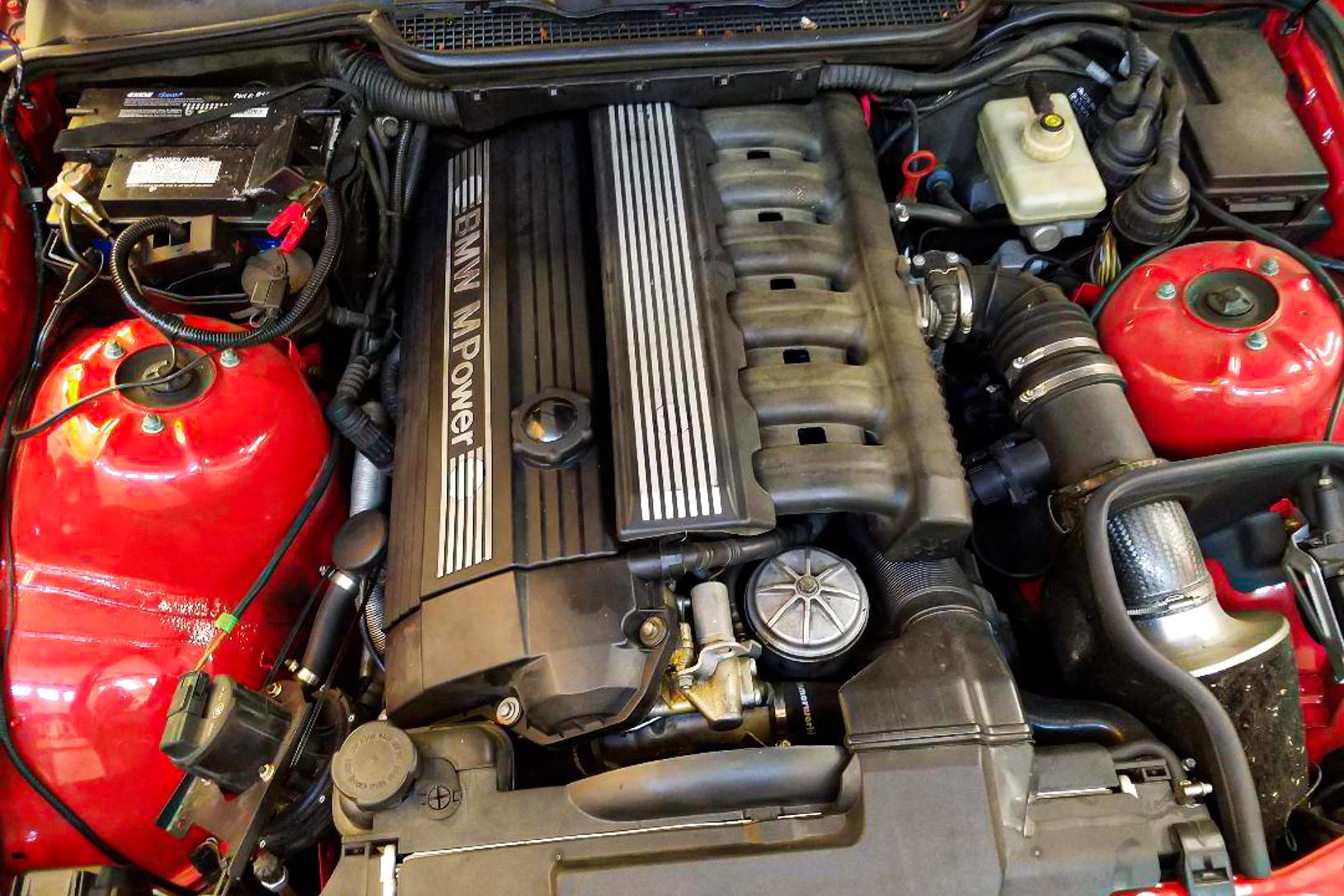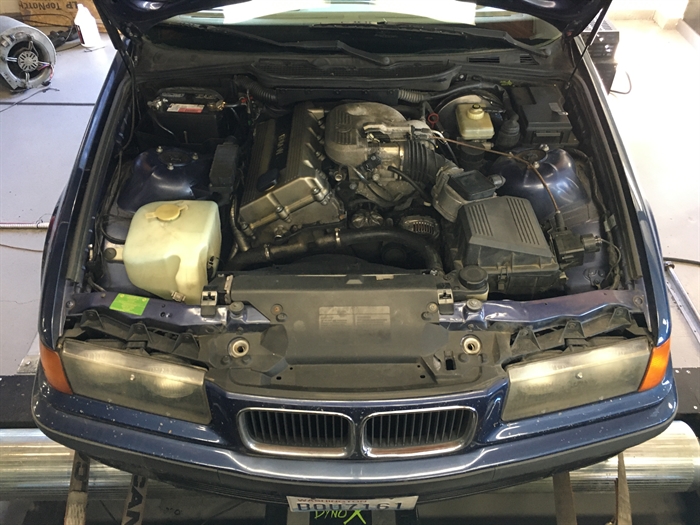BMW 318ti: Efficiency Specifications and Qualities Explained
BMW 318ti: Efficiency Specifications and Qualities Explained
Blog Article
Trick Attributes to Look for When Buying an Engine for Automotive Applications
When thinking about the purchase of an engine for vehicle applications, several crucial features call for mindful examination to ensure ideal efficiency and functionality. From power and efficiency capacities to fuel adherence, effectiveness, and durability to emissions criteria, each facet plays a vital duty in determining the engine's viability for specific automobile requirements.
Power and Efficiency
When picking an automotive engine, buyers prioritize power and performance to guarantee ideal driving experience and effectiveness. The power result of an engine, usually measured in horse power (HP) or kilowatts (kW), determines the acceleration, top speed, and overall capabilities of a vehicle. Higher power ratings generally result in quicker acceleration and better efficiency, specifically throughout surpassing or lugging hefty tons. Performance, on the other hand, encompasses a broader range of features, consisting of gas effectiveness, discharges, reliability, and overall driving characteristics. A well-performing engine not just provides power effectively but also runs efficiently across different rate arrays and driving problems.
In addition, factors such as engine crossbreed, variation, and turbocharging innovations play substantial roles in enhancing both power and performance degrees. Inevitably, selecting an engine that provides a powerful mix of power and performance guarantees a gratifying and reliable driving experience.
Gas Performance
Maximizing fuel efficiency is an extremely important consideration for consumers when evaluating vehicle engine options. The efficiency of an engine straight impacts operating expense and environmental impact. One key aspect affecting fuel performance is the engine's design and innovation. Modern engines with attributes like direct gas shot, turbocharging, and variable valve timing can dramatically enhance gas efficiency by boosting combustion procedures and reducing energy loss. Furthermore, the general weight of the engine and automobile, along with the aerodynamics, play essential functions in determining fuel usage.

Resilience and Integrity
Accomplishing long-lasting performance and dependable procedure is important for customers assessing the longevity and dependability of auto engines. When thinking about an engine for auto applications, sturdiness describes the engine's capability to hold up against wear, anxiety, and harsh operating problems over an extended period. Integrity, on the various other hand, suggests that the engine can continually perform its designated feature without unexpected malfunctions or failures.
Consumers need to look for engines built with high-quality materials and exact engineering to make certain longevity. Components such as crankshafts, pistons, and bearings need to be durable to deal with the engine's power outcome without early wear. Furthermore, engines outfitted with innovative cooling systems, effective lubrication, and robust filtration mechanisms have a tendency to display greater degrees of dependability.
Routine upkeep and adherence to maker referrals are additionally crucial consider preserving an engine's sturdiness and dependability. By complying with maintenance schedules, using recommended fluids, and addressing any concerns without delay, customers can make the most of the life expectancy and performance of their automobile engines. Eventually, focusing on toughness and dependability in engine choice can result in a more satisfying possession experience with less unforeseen interruptions.
Exhausts Conformity
Making sure conformity with discharges policies is a vital aspect of reviewing auto engines for ecologically conscious customers. With boosting issues about air high quality and ecological influence, strict discharges standards have actually been placed in place around the world to minimize hazardous toxins released right into the environment. When buying an engine for automotive applications, it is important to consider its discharges conformity to decrease the carbon footprint and adhere to lawful needs.
Modern engines are outfitted with innovative emission control technologies such as catalytic converters, exhaust gas recirculation (EGR) systems, and discerning catalytic decrease (SCR) to minimize hazardous exhaust gases like nitrogen oxides (NOx), carbon monoxide gas (CO), and hydrocarbons (HC) These systems play an essential duty in guaranteeing that the engine satisfies the defined discharges criteria and operates within acceptable restrictions.

Cost-effectiveness
When taking into consideration auto engine purchases, assessing cost-effectiveness is vital for customers looking for both efficiency and worth. Cost-effectiveness in engine procurement involves more than just the initial Our site purchase cost. It includes the general costs connected to upkeep, gas intake, and possible fixings over the engine's lifespan. Going with an engine that offers a balance in between lasting financial savings and upfront costs can cause substantial advantages for the customer.
Engines that are made to take full advantage of fuel economic climate can lead to substantial cost savings over time, especially for individuals that drive frequently or over lengthy ranges. bmw 318ti. Furthermore, taking into consideration the accessibility and price of extra parts and maintenance can add to the general cost-effectiveness of an engine.

Final Thought
Finally, when visit here purchasing an engine for automobile applications, it is vital to take into consideration key attributes such as power and efficiency, gas sturdiness, effectiveness and integrity, emissions compliance, and cost-effectiveness. These factors are important in guaranteeing that the engine meets the requirements of the car and operates effectively in various driving problems - bmw 318ti. Making an educated choice based upon these look at this site requirements will eventually result in a reliable and effective automobile engine purchase
From power and performance capacities to sustain adherence, longevity, and effectiveness to emissions criteria, each element plays an important role in establishing the engine's suitability for specific vehicle requirements. Engines designed to run on different fuels such as electrical power, hybrid systems, or biofuels can supply enhanced gas economic climate and lower discharges compared to standard gasoline or diesel engines. Customers ought to meticulously think about the gas effectiveness rankings and innovations included into auto engines to make informed investing in decisions that straighten with their priorities for expense financial savings and sustainability.
When thinking about an engine for auto applications, resilience refers to the engine's ability to withstand wear, stress and anxiety, and extreme operating problems over an extensive period.In final thought, when acquiring an engine for automobile applications, it is vital to consider essential functions such as power and efficiency, gas durability, reliability and efficiency, emissions compliance, and cost-effectiveness.
Report this page